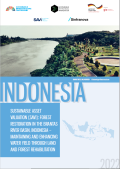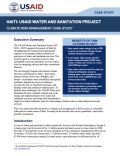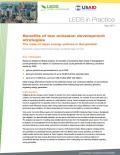USAID LESTARI partners with the Government of Indonesia (GOI) to reduce greenhouse gas (GHG) emissions and conserve biodiversity in carbon rich and biologically significant forest and mangrove ecosystems. This is achieved through improved land use governance, enhanced protected areas management and protection of key species, sustainable private sector and industry practices, and expanded constituencies for conservation among various stakeholders. To achieve objectives for private sector engagement, LESTARI implements two principle approaches – (1) supporting green enterprises to enhance sustainable livelihood opportunities for local communities, and (2) facilitating training and adoption in Best Management Practices by land-based concession companies. This brief focuses on the first approach, including a summary of the initiatives that were undertaken, the main outcomes and impacts, and the key lessons learned from five years of implementation.
LESTARI assistance for green enterprises aimed to contribute to the achievement of the project’s overall objectives in reducing deforestation and degradation, and associated land- based greenhouse gas emissions. The project theory of change for this approach is that if local communities in focal areas are able to secure sustainable and sufficient economic benefits from Green Enterprises, then pressures for forest encroachment will be reduced. LESTARI also aimed to facilitate partnerships for Green Enterprises so that they bring fair and lasting benefits to communities and their partner buyers, enabling the partnerships to continue after LESTARI closeout. This is expected to contribute to greater self-reliance of project beneficiaries.



